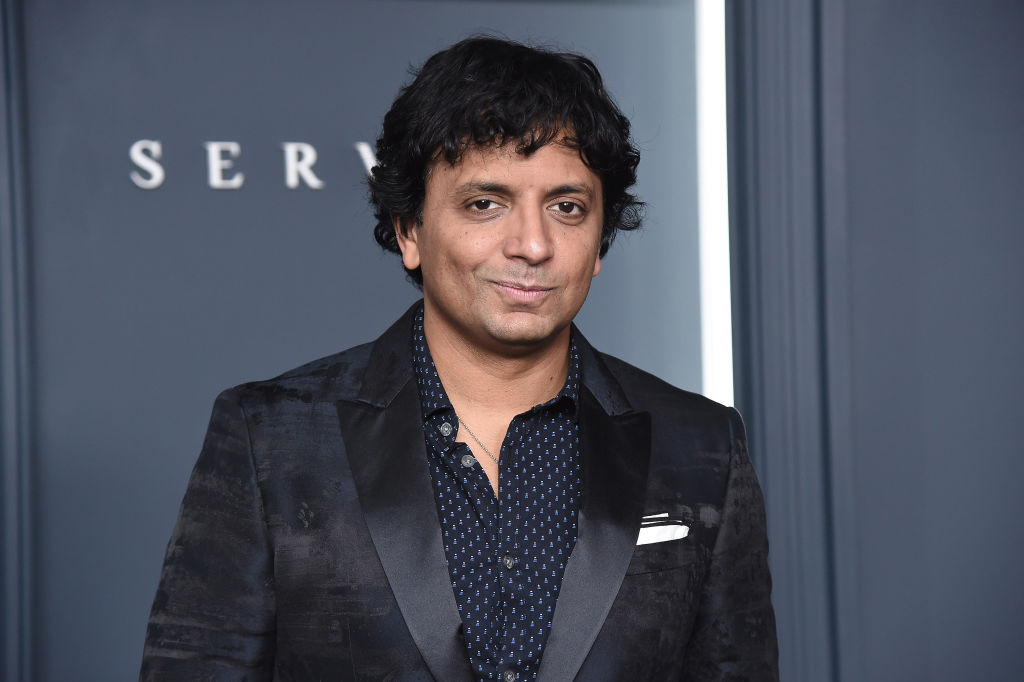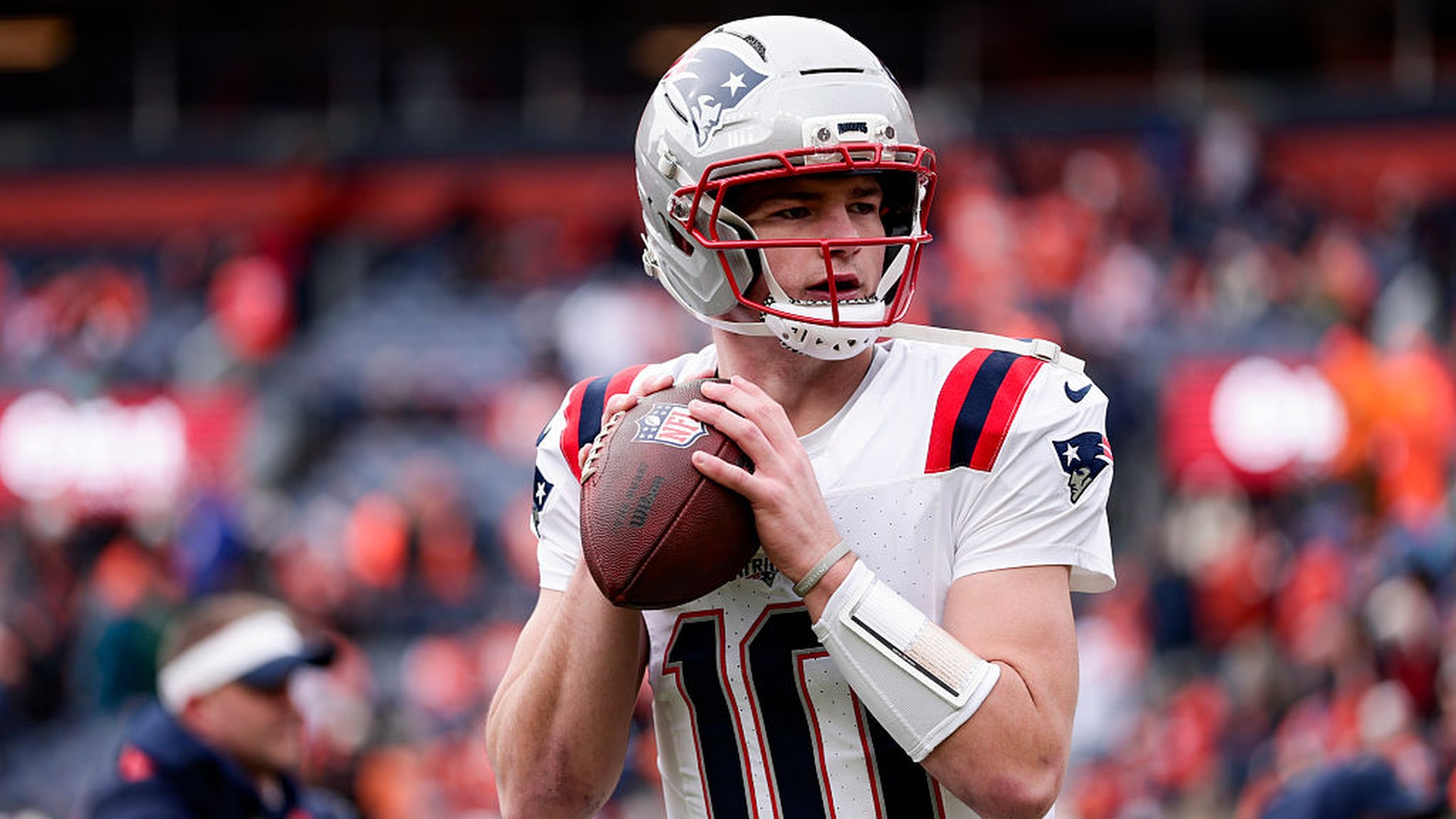Why do we still go after M. Night Shyamalan?
M. Night Shyamalan has long been a pop culture punching bag but his work deserves far better than that.

The latest updates, reviews and unmissable series to watch and more!
You are now subscribed
Your newsletter sign-up was successful
Want to add more newsletters?

ONCE A WEEK
What to Watch
Get all the latest TV news and movie reviews, streaming recommendations and exclusive interviews sent directly to your inbox each week in a newsletter put together by our experts just for you.

ONCE A WEEK
What to Watch Soapbox
Sign up to our new soap newsletter to get all the latest news, spoilers and gossip from the biggest US soaps sent straight to your inbox… so you never miss a moment of the drama!
The trailer for Old, the latest supernatural thriller from director M. Night Shyamalan, dropped amid the usual flurry of comments and jokes. Shyamalan is an easy filmmaker to write off, even though he keeps returning to prove his doubters wrong. This new film, starring Gael Garcia Bernal and Vicky Krieps among its immensely talented ensemble, follows a family on vacation who discover that they are spontaneously ageing rapidly. It's a very M. Night-esque set-up, and Twitter immediately made jokes about twist endings, high-concept flubs, and Shyamalan's seemingly portentous style (they also continued making fun of his surname, which is just tacky and racist, and people should stop doing that.)
It's been over 20 years since Shyamalan's breakout film The Sixth Sense made him one to watch, and arguably 15 years or so since his reputation as the next Hitchcock started to crumble. For a while, Shyamalan was the punching bag of Hollywood, the director who it was OK to laugh at, especially after a string of flops that seemingly put his career to rest. Yet he's still here, and he's now found a comfortable niche among the current horror directors he clearly inspired. Perhaps more crucially, there’s been a critical re-examination of his more maligned films from years past. Over two decades, Shyamalan has gone from unimpeachable rising star to derided failure to oddly underrated genre devotee. It’s about time he got his dues.
It’s worth noting the specific context of Shyamalan’s career: An Indian American director in a hugely white industry who makes almost entirely original films that consistently make solid box office profits and has never downplayed his ambition or earnestness. In 2013, the British Film Institute said that one of Shyamalan's challenges is presenting works that "(ask) for childlike wonder and rapt attention", something that seems horribly unfashionable during the era of too-cool-for-school snark and grimdark anti-heroes.
It became so publicly accepted to mock Shyamalan that blatantly racist mispronunciations and mockery of his name were welcomed by the masses. An infamous Robot Chicken sketch doubled down on this shtick and gave their Shyamalan stand-in a stereotypical Indian accent (Shyamalan grew up in Philadelphia and has an American accent.) He's faced the kind of harsh cruelty and scathing public condemnation that simply doesn't happen to much less talented white dudes whose films bomb time and time again. It doesn't seem coincidental that arguably the most well-known Indian American director on the planet is subjected to this sort of nastiness in a way his white counterparts aren't.
It's not just about the personal attacks either. Shyamalan's work is deemed to be deeply uncool to many because it's proudly spiritual, full-throated in its earnestness, and often more akin to fairy-tales than classic horror. Unbreakable took superhero narratives seriously in a way that Hollywood would not until such films became the only thing studios were interested in making. He viewed the comic book heroes and villains of his childhood as seriously as ancient Greek mythology and teased out a story that felt both classic and modern in its examination of the almighty battle between good versus evil. The Village is a deeply romantic suspense drama that fully believes in its central love story yet finds a fascinatingly prescient fear at the heart of its set-up. The idea of a group of privileged people choosing to cloister themselves in the rose-tinted past over confronting the prickly truths of an unknown future seems wildly relevant today. Signs is a warm family drama of grief and failure that manages to be deeply scary and often surprisingly funny. The scene where Joaquin Phoenix sees the news clip of an alien and leaps backwards in shock is still a moment of potent fear for the viewer. You always forget the exact timing of the alien’s appearance and it makes you jump every single time.
The basic craft of Shyamalan’s work is unassailable. He’s worked with some of the best people in the industry and their collaborations are frequently sinfully underrated. His regular musical collaborator, James Newton Howard, does his best work with Shyamalan, which is no mean feat given that he’s composed scores for the likes of Christopher Nolan, Terrence Malick, and Kathryn Bigelow. On The Village, his cinematographer was the legendary Roger Deakins, and his lush romantic color palate worked perfectly in tandem with the narrative's blend of indie love story and moralistic parable. He also brings out interesting and unexpected shades with his actors. The legendary stage star Betty Buckley was given the space to be sinister and lascivious in a way that we never thought she'd pull off. Before he became the go-to actor for tormented souls, Shyamalan cast Joaquin Phoenix as a sardonic bro and a quiet romantic gentleman respectively, and he excels in both roles so effortlessly that you can't help but wonder why no other director has seen in Phoenix what Shyamalan does.
It's interesting that audiences have returned to Shyamalan as he has moved away from his more childlike wonderment. The Visit, Split, and Glass are more giddily schlocky in style, borrowing more from B-movie drive-in titles than the classical molds of his earlier work. Split wouldn't seem out of place among the movies name-dropped in the "Science-Fiction Double Feature" of The Rocky Horror Picture Show. Granted, it's significantly more elegant in style and visuals than its fore-bearers, as Shyamalan is a director who refuses to abandon aesthetic beauty in favor of the easy route.
The latest updates, reviews and unmissable series to watch and more!
Crucially, Shyamalan always swings for the fences, and even when he stumbles (and he has fallen hard, as any fan of Avatar: The Last Airbender will tell you), there are stand-out moments amid the chaos. His formula may have become trite after a while but then, all of a sudden, he'd stun audiences in a shocking way and there he was, back in the game. The ending of Split is masterful for that reason. His work on television has also grown in terms of elegance and scope. Apple TV+'s Servant is a strange mixture of slow-burn European prestige drama and 1970s slasher flick, and it works! Even in the age of Peak TV, it’s hard to imagine anyone else but Shyamalan pulling such a bonkers and inherently laughable concept off with the right balance of seriousness and humor (Shyamalan’s work is also way funnier than it’s ever given credit for.)
Shyamalan now works with horror producer extraordinaire Jason Blum, a fitting partnership given that Blumhouse owes a lot to the roads paved via films like The Sixth Sense. Maybe now that the impossibly high expectations and the barrage of cruel derision have both passed, we can simply evaluate Shyamalan’s work on its own terms. It’s worth the wait.
Kayleigh is a pop culture writer and critic based in Dundee, Scotland. Her work can be found on Pajiba, IGN, Uproxx, RogerEbert.com, SlashFilm, and WhatToWatch, among other places. She's also the creator of the newsletter The Gossip Reading Club.


